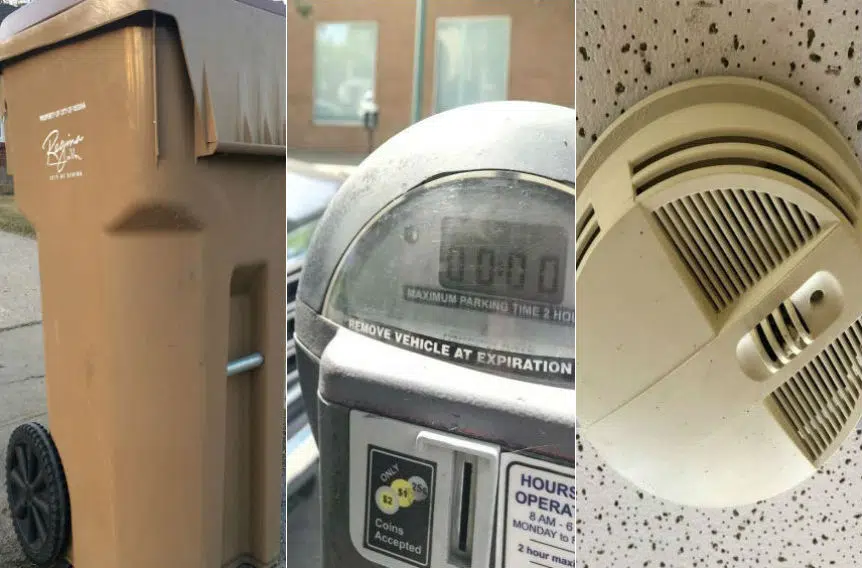Regina homeowners will have three bins to roll to the curb by 2020 after city council voted to move forward with an organic waste pilot project Monday night.
“Almost every other major city in Canada has this kind of a program, so we’re behind in terms of what we do for the environment,” Mayor Michael Fougere said on the Greg Morgan Morning Show on 980 CJME Tuesday.
The third curbside bin for organic waste like food scraps and yard clippings is meant to help the city move toward a target of eventually diverting 65 per cent of residential garbage away from the landfill.
“We recycle about 20 per cent of what we throw away which is way below what we want to have. We want to have 30 to 35 per cent roughly,” Fougere noted. ” Right now about 50 per cent of what we throw away is organic material that can be recycled. So you’re going to pull that out of the garbage stream and our landfill will last longer. We’ll pay a bit for that yes, but it’s good for the environment and that’s what is important here.”
Under the program, the organic waste would be picked up every week but regular garbage collection would move to a schedule of every other week permanently throughout the entire year.
According to the initial proposal by city administrators in August, the pilot project will cost about $3.3 million. The annual cost of the program would be $7.9 million but it would save the city $4.6 million on regular garbage collection. Homeowners would have to pay between $36 and $51 on their taxes.
Fougere clarified these are estimated costs and the program will reduce the cost of regular weekly garbage collection. The purpose of the pilot project is to figure out exactly how it will work and what it will cost the city long-term.
While residents wait for curbside organic waste bins to roll out, the city will move the current yard waste depot to a larger site to operate it between April and November.
Starting in 2019, the city will begin the process by consulting with experts and procuring a contractor for collection in the pilot project phase. The city will also start the competitive procurement process for construction and operation of an organic waste processing facility.
After a review of the pilot project in 2020, the full program is expected to roll out in 2022.
Council also approves parking app and fire bylaw changes
Curbside organic waste was one of three major agenda items passed by city council Monday, with a vote to approve a new parking payment app and changes to fire bylaws.
The smartphone app will allow drivers to pay for parking without carrying change. It will not require any new infrastructure on parking metres, but it may charge an additional 35 cent fee.
Council also passed changes to the fire bylaw which will now require all landlords to check smoke alarms every six months. The bylaw will also charge a fee for false alarms that are not triggered by smoke, the first will result in a warning letter but the second would require residents to pay $300 and any consecutive false alarm would be $600.











